The soap industry in Bangladesh has grown significantly over the past decades. Soap bases, which form the core ingredient for soap production, are critical for manufacturers aiming to produce high-quality soaps. This article explores the pricing dynamics of soap bases in Bangladesh, the factors influencing their cost, and their impact on various sectors, including cosmetics, healthcare, and household goods.
What is a Soap Base?
A soap base is a pre-manufactured base material used for soap making. It typically consists of glycerin, oils (such as coconut, palm, or olive oil), and other ingredients that provide cleansing and moisturizing properties. Common types of soap bases include:
- Glycerin Soap Base: Known for its transparency and moisturizing properties.
- Melt and Pour Soap Base: Used in hobbyist soap making due to its ease of use.
- Goat Milk Soap Base: Popular for sensitive skin.
- Organic Soap Base: Free from synthetic additives and chemicals.
Each type of soap base has a different price point depending on its composition and quality.
Market Overview of Soap Bases in Bangladesh
The demand for soap bases in Bangladesh has been on the rise due to the expansion of the cosmetics and personal care industry. Key players in the market include both local manufacturers and imported brands.
Local Manufacturers: Companies such as ACI Limited, Square Toiletries, and Keya Cosmetics contribute significantly to the soap base market. These companies often produce soap bases tailored to local needs and preferences.
Imported Soap Bases: High-end brands and specialized soap bases are often imported from countries like Malaysia, India, and China. These cater to premium market segments and niche industries like organic skincare.
Price Range of Soap Bases in Bangladesh
The price of soap bases in Bangladesh varies depending on factors such as quality, type, and source. Here’s an estimated breakdown:
- Glycerin Soap Base: BDT 200-400 per kilogram
- Melt and Pour Soap Base: BDT 300-600 per kilogram
- Organic Soap Base: BDT 600-1,200 per kilogram
- Customized Bases (e.g., goat milk, shea butter-infused): BDT 800-1,500 per kilogram
Wholesale prices for bulk purchases are generally lower and cater to industrial buyers and large-scale soap manufacturers.
Factors Influencing Soap Base Prices in Bangladesh
- Raw Material Costs: The availability and cost of ingredients such as oils, glycerin, and natural additives directly impact pricing.
- Import Duties: Imported soap bases may attract higher costs due to taxes and duties.
- Production Technology: Local manufacturers using advanced production methods may offer competitive pricing compared to imported products.
- Demand and Supply: Seasonal demand, especially during festivals or heightened hygiene awareness campaigns, can drive prices up.
- Market Competition: A competitive market often results in lower prices as companies strive to capture larger shares.
Industries That Use Soap Bases in Bangladesh
- Cosmetics Industry: Soap bases are the foundation for premium soaps, herbal soaps, and beauty bars.
- Healthcare Sector: Medicated soaps used in hospitals and clinics are often derived from specialized soap bases.
- Artisan Soap Makers: Hobbyists and small-scale entrepreneurs rely on soap bases for creative soap crafting.
- Hospitality Industry: Custom-branded soaps for hotels and resorts are typically made from melt-and-pour or glycerin bases.
Opportunities in the Soap Base Market
- Growth in Organic and Herbal Products: Rising awareness of organic and herbal skincare is boosting demand for natural soap bases.
- Export Potential: High-quality soap bases produced in Bangladesh can tap into international markets.
- E-Commerce Platforms: Online marketplaces like Daraz and Facebook shops make soap bases more accessible to small-scale producers.
Challenges in the Soap Base Market
- Fluctuating Raw Material Prices: The dependency on imported oils and chemicals makes pricing volatile.
- Quality Control: Ensuring consistent quality across batches is a significant challenge for local manufacturers.
- Competition from Imports: International brands with established reputations often overshadow local products.
Conclusion
The soap base market in Bangladesh is poised for growth, driven by increasing demand from various industries and the rise of organic and artisan soap production. Understanding the factors affecting prices and the opportunities in the market can help businesses and individuals make informed decisions.
For manufacturers and entrepreneurs looking to enter the soap market, investing in high-quality soap bases and staying updated on market trends is essential. By doing so, they can cater to a diverse consumer base while maintaining competitive pricing.

